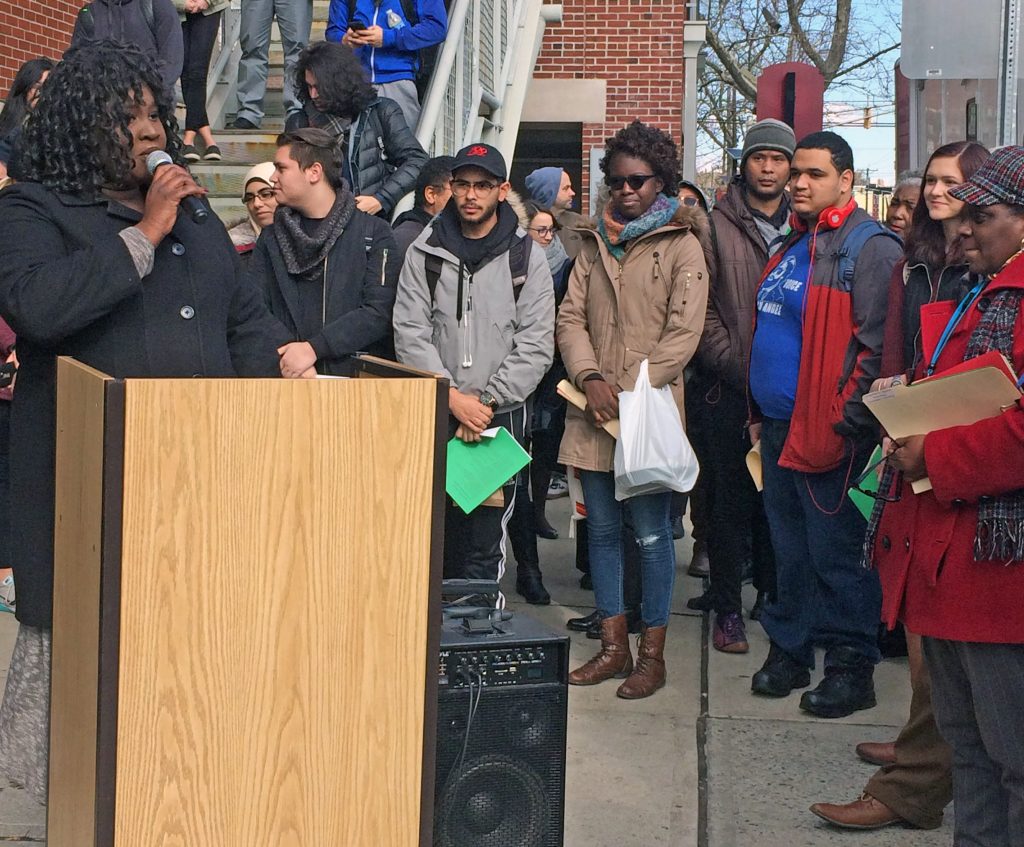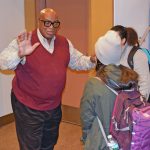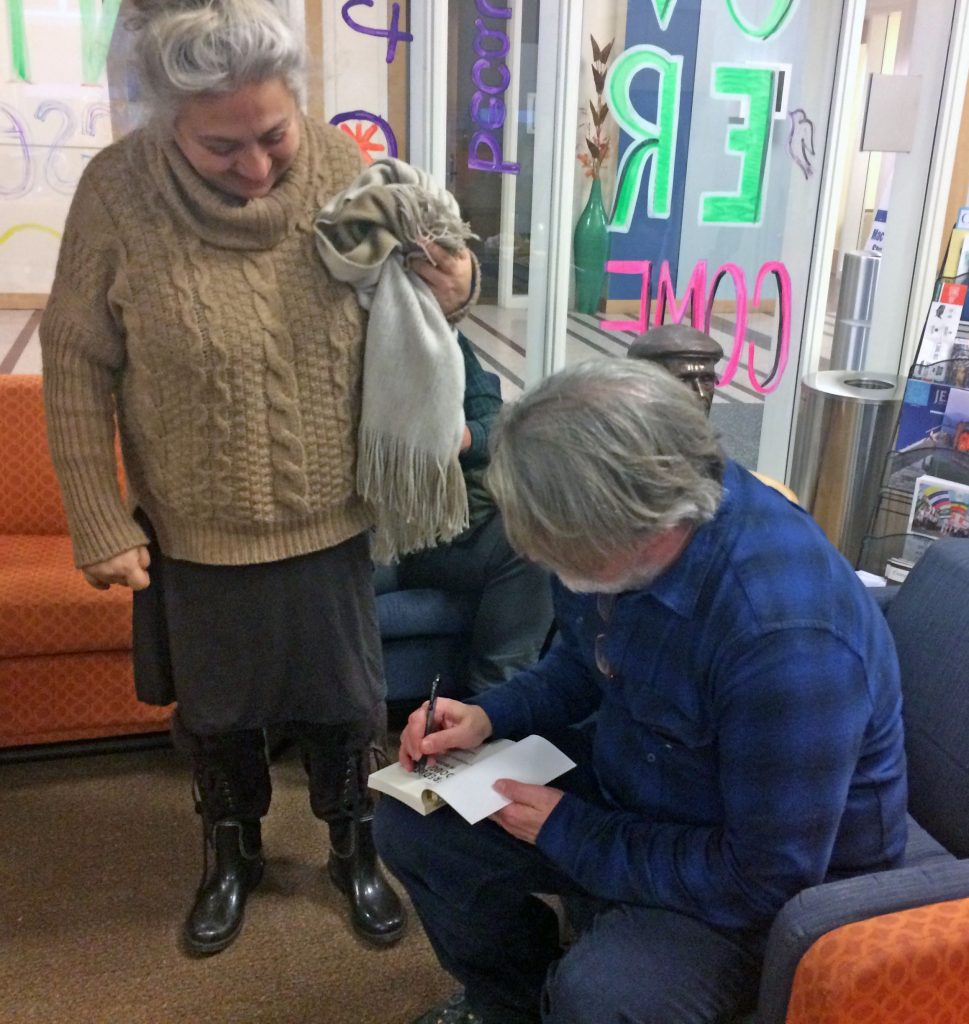Saint Peter’s University celebrated Black History Month with programs, remembrances and events. A flag raising ceremony on February 2 served as the official kick-off on campus.
At the flag rising, students, faculty and staff gathered to hear inspirational songs, poems, essays and quotes.
 Eugene J. Cornacchia, Ph.D., president of Saint Peter’s University, said, “Here, at Saint Peter’s, we are responsible for creating an atmosphere that celebrates inclusion, and respects, cherishes and nurtures those of different races, backgrounds and cultures.”
Eugene J. Cornacchia, Ph.D., president of Saint Peter’s University, said, “Here, at Saint Peter’s, we are responsible for creating an atmosphere that celebrates inclusion, and respects, cherishes and nurtures those of different races, backgrounds and cultures.”
His sentiments were echoed, and truly felt by the other speakers and audience members. By the end of the program, many were brought to tears. Alicha Elola ’17 from the Black Action Committee (BAC) urged audience members to embrace each other and reminded them that this embrace was a symbol of how they should go forth and show support for each other.
The audience hugged as Elola guided them, “Many of us go through similar struggles and at times don’t know who to turn to. For once, I want you all to know today that you may turn to me. If you out there in the audience feel the same way, feel that you are a shoulder to cry on, an ear to listen, a voice of reason, turn to your neighbor and let he or she know that you will be there for them through it all. You can turn to your neighbor, and hug them, shake their hands feel the struggle, feel the emotions that come from within.”
In her speech, she also described the symbolic nature of the flag–one of hope and an inclusive future moving forward. The ceremony was sealed with songs performed by Sondra Buesing-Riley, director of cooperative education and internship program, the Voices of Praise gospel choir and Jonathan Brantley ’21.
Later in the month, on February 7, Rev. Marion Franklin, Ph.D., an adjunct professor in Africana studies, led a discussion on the role of the church in the Civil Rights movement.
“The black church became the black people’s answer to survival,” he said in his lecture, sharing information from his research. He emphasized the point that the church played a crucial role in the Civil Rights Movement because it provided a place for blacks to congregate and it supported the message of non violent protests. After the lecture, a line formed to ask Dr. Franklin more questions about the topic.
Later in the month, The Joseph A. Kelly Office of Campus Ministry hosted a round table discussion with Theodore Hamm, editor of Frederick Douglass in Brooklyn. Theodore Hamm is chair of journalism  and new media studies at St. Joseph’s College in Clinton Hill, Brooklyn. The book compiles Douglass’ speeches from before, during and after the Civil War and serves as an indicator of Brooklyn.
and new media studies at St. Joseph’s College in Clinton Hill, Brooklyn. The book compiles Douglass’ speeches from before, during and after the Civil War and serves as an indicator of Brooklyn.
At that time, newspapers would not only transcribe speeches, but they would also write audience’s reactions to the words. Through these newspaper transcripts, Hamm was able to get a good sense of how the public was reacting to Douglass. Hamm discussed Douglass’ relationship with Abraham Lincoln, and stressed the fact that even though Lincoln was opposed to slavery, he was not necessarily for black rights.
“Douglass was not only an intelligent speaker, but he was an entertainer. He was witty, and he never held back. He was someone who always said what has on his mind,” said Hamm.
Other events throughout the month included movie screenings, lectures from prominent black figures in the community, spoken word, stepping performances and a presentation on black fashion.
